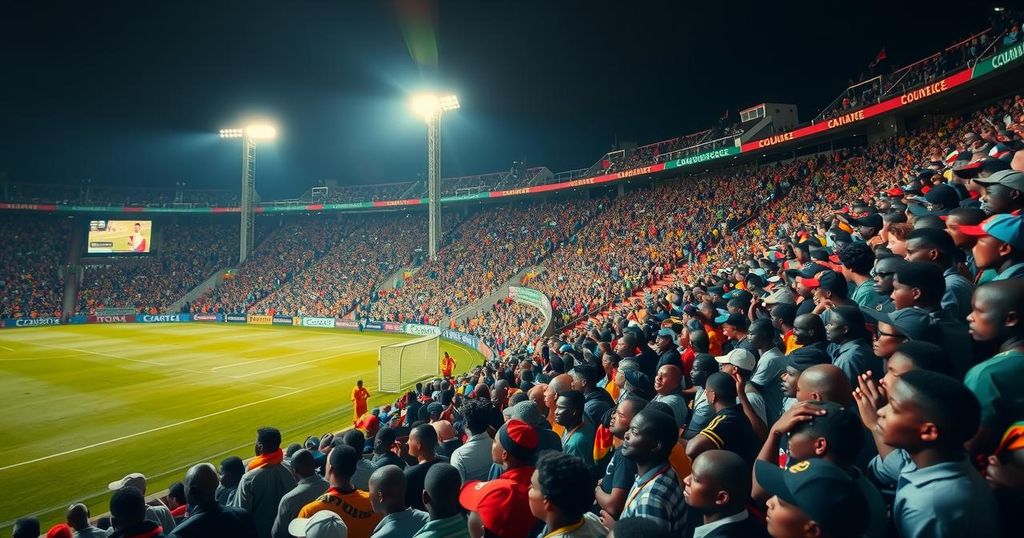Dozens have reportedly died in a crush at a football match in N’zérékoré, Guinea, following clashes between fans and police. Prime Minister Mamadou Oury Bah announced the incident was triggered by a referee’s decision, leading to chaos among spectators. The current casualty numbers remain unreleased, but local hospitals are struggling with casualties. Authorities are working to restore calm following the tragedy.
A tragic incident occurred at a football match in N’zérékoré, Guinea, where a crush resulting from a violent altercation resulted in multiple fatalities. Prime Minister Mamadou Oury Bah reported that a stampede ensued during the match, which involved teams N’zérékoré and Labé. Witnesses indicated that unrest erupted due to a disputed referee decision, prompting fans to surge onto the field. Eyewitness accounts describe the scene as chaotic, with considerable casualties reported, although precise numbers remain unconfirmed. Authorities are now striving to restore order and provide assistance to those injured.
In Guinea, football matches have historically been significant events, sometimes leading to intense rivalries among fans. This recent incident echoes the deeply rooted issues concerning crowd control and the safety of attendees during large-scale events. The historical context includes past tragedies, such as the 2009 stadium massacre, where security forces were involved in a deadly crackdown during a public gathering. The presence of massive crowds during a match in honor of President Mamadi Doumbouya, who came to power following a coup, further complicates the atmosphere surrounding public events.
The recent tragic crush at the football match in N’zérékoré highlights the critical need for improved crowd management and security measures during large gatherings. It serves as a poignant reminder of past events that have marred similar occasions in Guinea’s history. As the nation grapples with the aftermath of this incident, emphasis must be placed on ensuring safety protocols to prevent any future occurrences of such disasters.
Original Source: www.bbc.com






